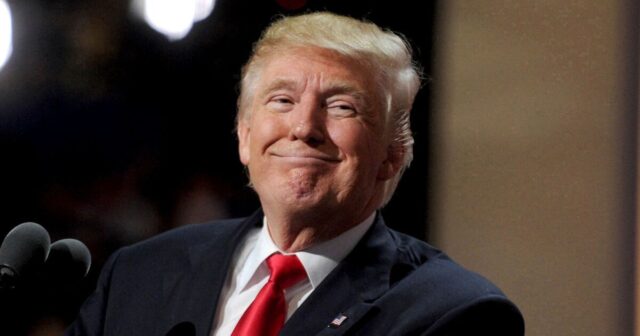Pundits including former Tory MP Rory Stewart convinced themselves that Donald Trump was certain to lose Tuesday’s Presidential election thanks to a fundamental misunderstanding about his underlying resilience, one analyst has suggested.
Journalist Jonathan Sacerdoti, who himself made numerous appearances to discuss the contest in recent weeks, was speaking after the 78-year-old billionaire handily saw off Democratic rival Kamala Harris to seal a return to the White House after a four-year absence.
The result, which saw Mr Trump win the electoral college and, for the first time, the popular vote, came as a major shock to many, like pollster Nate Silver, who had predicted the contest was too close to call, and to others, like Mr Stewart, who bullishly insisted that Ms Harris would win comfortably.
Mr Sacerdoti said: “Pundits, including Rory Stewart, appear to be misunderstanding the staying power and resilience of Trump’s support, largely because they’re insulated by like-minded perspectives.
“This echo chamber effect results in an assumption that Trump’s base will waver in the face of his controversies, even though past elections have shown the opposite – polls repeatedly underestimated his support in 2016, 2020, and now again in 2024.
“Stewart has embarrassed himself, and it’s not like this was such a massive surprise: those who had kept an open mind had certainly not ruled Trump’s victory out.
“I myself spoke about the likelihood of him winning several times on UK and international news programmes, as did many others less blinded by their own ideology and wishful thinking.”
While the media outlets fixated on scandal and drama, Mr Trump’s message about economic security and a perceived fight against “elite governance” clearly resonated with his supporters, Mr Sacerdoti suggested.
He continued: “As Stewart’s comments highlighted, there’s a risk that the pundit class is simply talking to itself.
“This bubble, detached from the motivations of Trump’s voter base, fails to recognise that people are increasingly aware of when they are being lied to or manipulated by the media and tech companies, and also see through chaos campaigning which predicts the end of democracy or other catastrophes when the evidence for that is low.”
Mr Sacerdoti also claimed attempts to portray Mr Trump as an enemy democracy and even referring to him as a Nazi had “backfired spectacularly”.
He said: “The Democrats, along with a sympathetic media landscape, have poured vast resources into crafting an image of Trump as a danger to the American republic, spending millions on ads and commentary that frame him as a unique threat.
“Yet, this narrative, despite near-universal backing from mainstream outlets, has failed to sway the electorate as they hoped.”
Indeed, Americans appeared more sceptical of this characterisation than ever, Mr Sacerdoti argued.
He added: “Many voters, rather than being persuaded by the apocalyptic portrayals, have focused instead on Trump’s policy record and the contrasts between his administration and the Democrats’ last four years.
“The outcome suggests that the electorate isn’t so easily influenced by media messaging; instead, they are drawn to a candidate they believe offers more concrete solutions on issues like the economy and immigration – areas where many felt the Biden-Harris administration struggled.
“In the end, this election reveals the limits of the old media’s power and underscores the public’s preference for those who cut through with more authenticity.”
Posting on X on Sunday, November 3, in response to remarks by Andrew Neil, Mr Stewart said: “Journalists would like the US race to seem as close as possible – it suits their appetite for suspense and @afneil’s desire to prod the establishment.
“But this won’t be a close race decided by a ‘couple of thousand votes’. He is wrong. And Kamala Harris will win.”
Three days later, with Mr Trump’s victory assured, he had changed his tune, posting: “For the record – I was completely wrong about Kamala Harris.
“It is heartbreaking that Trump is now the President.”





